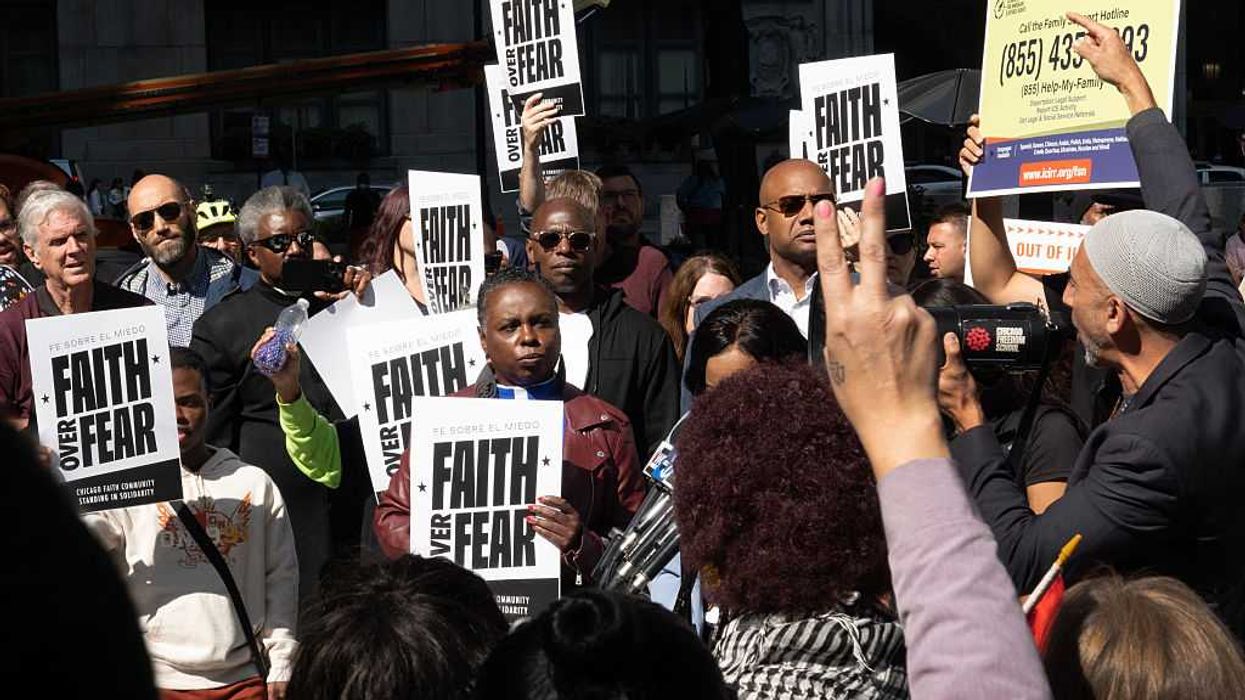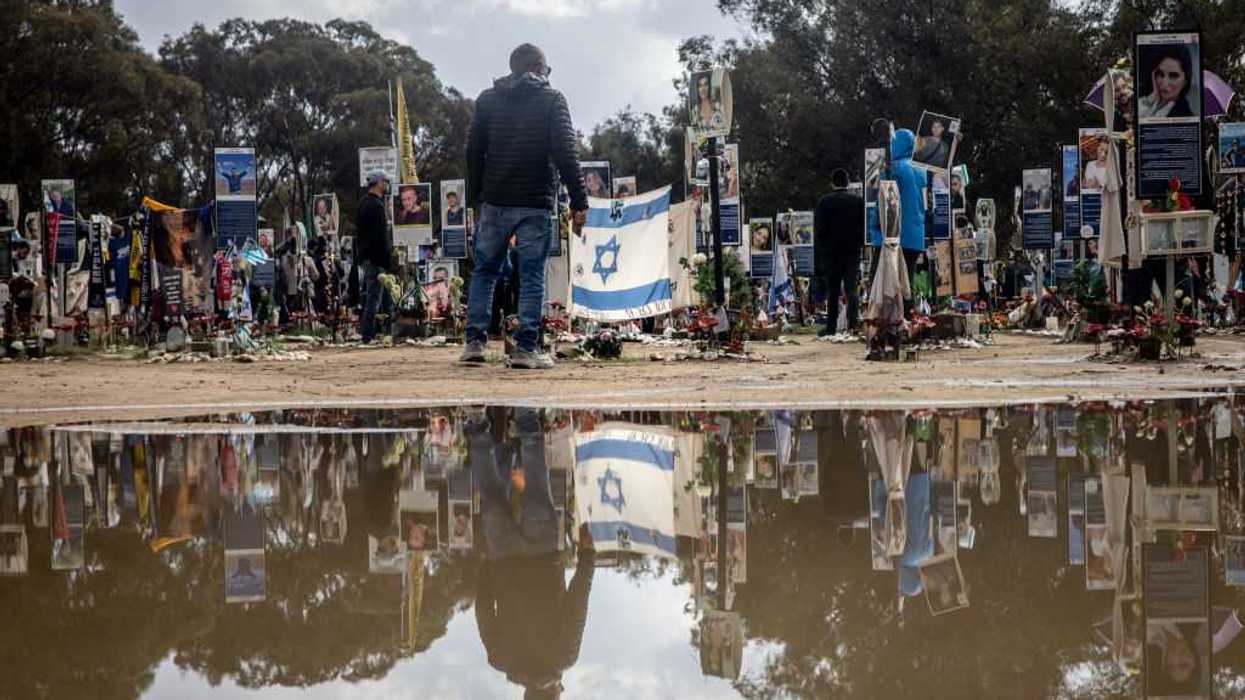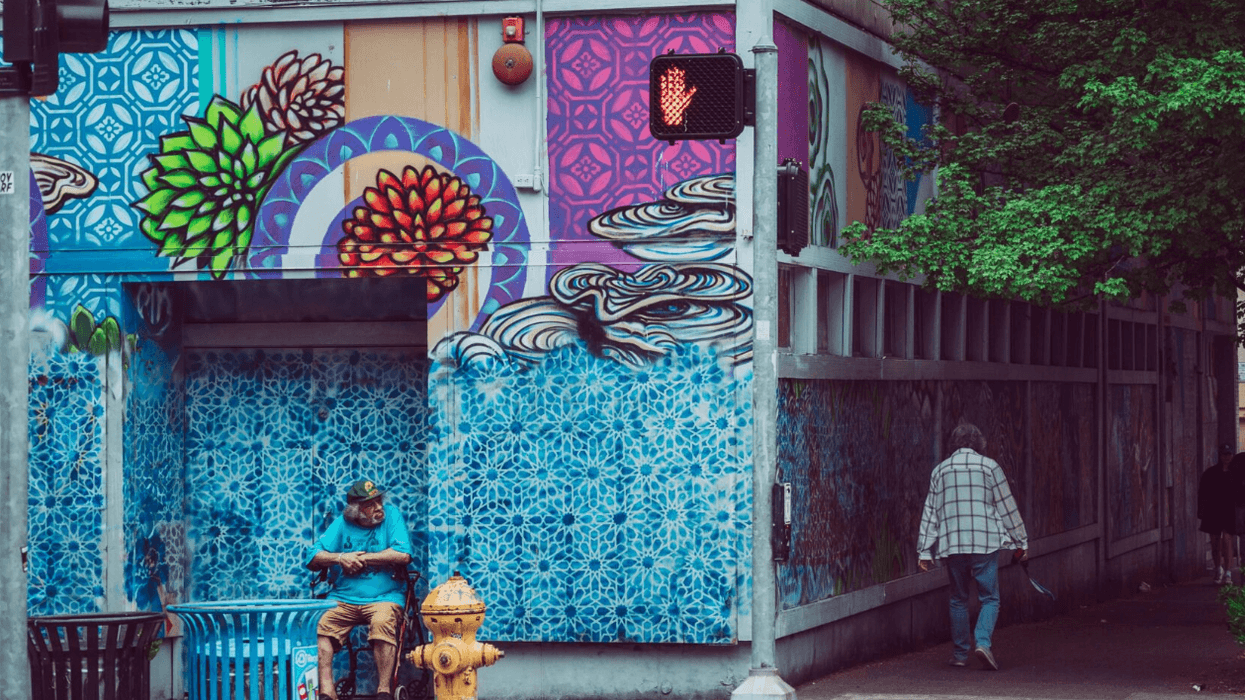Eighty years ago this week (October 25, 1945), Angelo Paterno rose to speak to an audience in New York City. World War II had concluded just weeks earlier. The awful scope of some of man’s greatest atrocities was still not fully understood. A mighty struggle against overt Fascism and Authoritarianism abroad had set the world ablaze. At home, the United States had avoided the lure of Fascist impulses that had drawn many of its fellow citizens to an ideology of open intolerance.
Angelo Paterno was a World War I veteran who returned to a country at a time of overt bigotry. Jim Crow laws were common, and laws were passed to limit immigrants from certain parts of the world. Being Italian and Catholic in the 1920s and 30s required facing ethnic and religious prejudice that was still a long way from easing.
That night in 1945, nearly two decades before the passage of the Civil Rights Act and the Voting Rights Act, this humble man rose to speak words that would undoubtedly make him a radical of his age. But this man proved by his words and the conduct of his life that he could see well beyond the horizons of what others believed was possible.
In 1997, New York Times writer William C Rhoden interviewed Joe Paterno, Angelo’s oldest son. As part of the interview, the talk turned to growing up in Brooklyn and seeing Jackie Robinson integrate baseball for his hometown Brooklyn Dodgers. The conversation turned to Angelo Paterno’s speech, which had just been recently discovered. Rhoden wrote:
“Paterno said you had to be there, had to live through it to fully understand the passions, the fears, the expectations surrounding the integration of America's national pastime. He said that these memories had been stirred up a day earlier when he received a package from his sister Florence. She had stumbled across a speech that their father had given on Oct. 25, 1945. It was a speech about brotherhood.
Angelo Lafayette Paterno was both a Clerk of the Supreme Court of the First Judicial District and a leader of the interfaith movement.
Joe Paterno had not heard the speech -- he did not know it existed. In October 1945, he was an 18-year-old Army private stationed in Korea. Fifty-two years later, as he read his father's words, Paterno said that he was filled with emotion to see that the underpinnings of his own outlook on society were so clearly nurtured and cultivated by his father.
With the nation drenched in segregation and divided along racial and religious lines, Angelo Paterno spoke in highly idealistic terms about tolerance as he defined interfaith for his audience.”
That the same aspirations that Angelo spoke of in this speech were the core values that he instilled in his oldest son is a reality that these were not just words. He spoke from the true depths of his very soul.
Angelo Lafayette Paterno died before any of my siblings and I were born. And yet these words endure from a man who dropped out of high school to join the Army- a man who returned to work and finished high school, college, and law school at night. And sadly, he was a man whose mortal voice fell silent before he could see the changes in the world that he sought.
But now, eighty years later in 2025 , his mortal words come back to us because the words calling us to be our most noble selves should never rest. The words of justice are impossible to silence forever. His speech was a call for unity over division, a call for fellowship and harmony over discord. At a pivotal moment in our nation’s history and in human history, it is essential to hear the voices of fearless people of the past.
We need to hear words like this at a time when division is encouraged, where governance by vengeance is admired, the rule of law is merely a suggestion, and where some of our most treasured American values are threatened by our surging militarism abroad and on our own streets. These words sadly resonate with a relevance eight decades later that should alarm all who love what we profess to stand for in America.
Remarks of the Hon. Angelo Paterno, Clerk of the Supreme Court of the First Judicial District and Director of Interfaith Movement, Inc. on Thursday, Oct. 25, 1945, at Barbizon-Plaza Hotel:
Recalling that the program for the evening is quite lengthy, I do not propose to take one minute longer than is absolutely necessary for me to convey to you assembled here this evening my thoughts in reference to this worthy Interfaith Movement.
Interfaith has been construed in diverse ways. Some people look upon the Movement as an outlet for prodigious writings wherein they extol the virtues of our cause; others expound the theories of Interfaith by loquacious and lengthy discourses; and some utilize a combination of both.
To me, Interfaith has only one meaning. To me, it signifies the opportunity to manifest our consideration for our fellow beings by our conduct. All of the talking and all of the literature in behalf of tolerance are wasted energies unless accompanied by some overt acts of the proponent in furtherance of our principles. Unless the individual, by his personal conduct in his everyday life, professes the sincerity of his teachings, no one will be impressed.
One cannot proclaim the affection for a person of another faith or color, and then refuse that person admission to his society because he does not worship in the same church or because he happened to be born of colored parents. A person should mean what he says or else he should refrain from comment.
That type of individual is the bigot upon whom we concentrate our efforts. He must be educated to the fallacy of his conduct by the example that we, of the Interfaith Movement, set by our individual acts.
My forebears have passed on to me a heritage. This treasured heritage has been thundered down through the ages to them, and they have kept it by their exemplary lives. That heritage, ladies and gentlemen, is the will to do unto others as you would want them to do unto you.
Stripped of all descriptive phrases and divested of its many interpretations, Interfaith means just that: Do unto others as you would want them to do unto you. This Movement should emanate from our hearts. The propelling force will then be strong enough to enable us to overcome all the obstacles placed in our paths.
We must have unity of thought. We must have unity of action. We must all act as missionaries, and we must preach to our fellow men, night and day, the evils of this hydra-headed monster of bigotry. The forces of intolerance and hate are on the march today. The seed of hate and discord is being sown all around us. It is our task to indicate our worthy ideals into the warped minds of the weakling before this seed takes root.
The echo of the thundering guns has scarcely subsided, leaving us to the sad memories of the flower of our American youth who will never return to their loved ones. A mighty armada of naval might is now assembling in our harbor. From the largest to the smallest vessel in that fleet, fresh from mortal combat with our common enemies, there is written in their battle histories countless exhibitions of Interfaith.
There was no discrimination in our armed forces. They fought and died to perpetuate the ideals for which we assembled here tonight, for which we stand, and for which we will continue to fight.
As we leave this assembly hall tonight, let us all make a solemn pledge to the thousands of American youth, white and black, Protestant, Catholic, and Jew, who have made the supreme sacrifice, that we will carry on these ideas for which they paid so dearly. They died that we might live and enjoy the benefits of this great and glorious country.
In conclusion, let me urge you who are assembled here this evening to rededicate your lives to the proposition that all of the forces of intolerance must be expunged from our midst and that you will become a crusader in this most worthy cause.
Jay Paterno is a former quarterbacks coach for Penn State University, ran for lieutenant governor of Pennsylvania in 2014 and consults on a variety of issues.




















